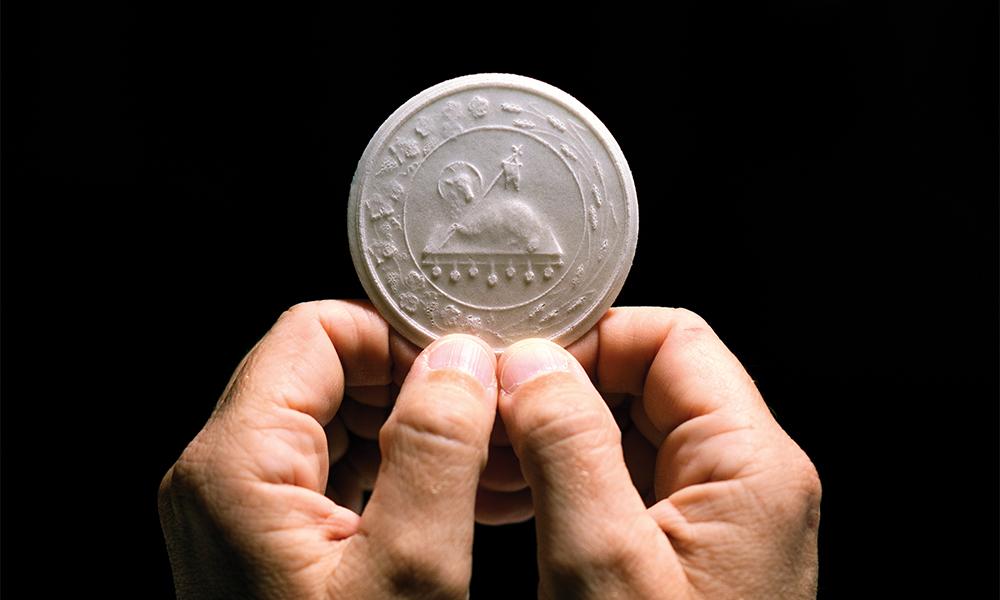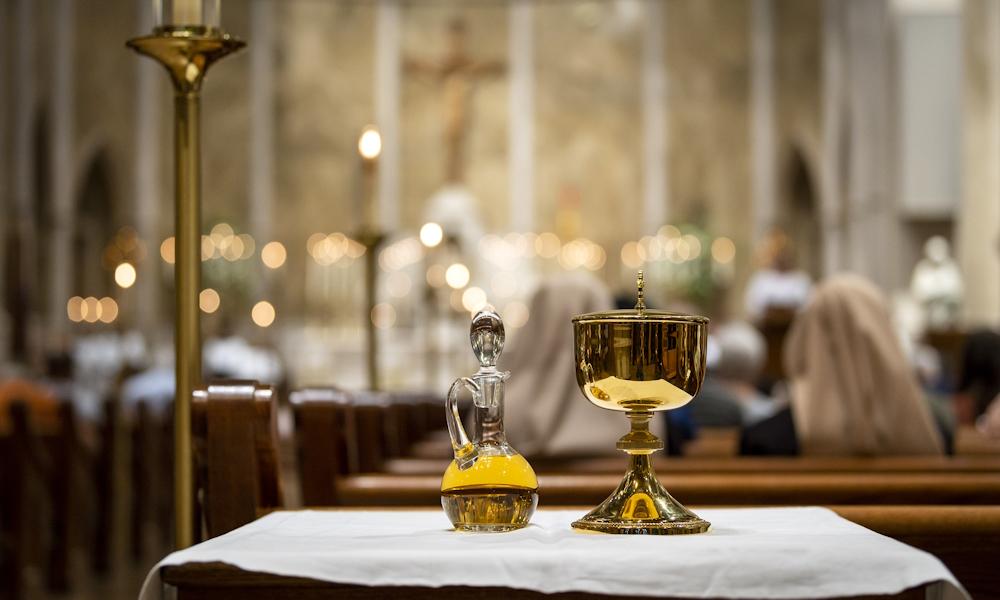
Really and truly present
Why do we believe that Jesus is truly present in the Eucharist, or rather, that the Eucharist is truly Jesus? For many Catholics today, however, this is no longer a question at all. They have concluded that the Eucharist is merely a symbol of Jesus’ Body and Blood or that the Eucharist is simply a metaphor. This mistake is easy to make.
Why do we believe that Jesus is truly present in the Eucharist, or rather, that the Eucharist is truly Jesus? For many Catholics today, however, this is no longer a question at all. They have concluded that the Eucharist is merely a symbol of Jesus’ Body and Blood or that the Eucharist is simply a metaphor. This mistake is easy to make.
Our senses tell us that only bread and wine are present, nothing more. But, can we be so sure that our sight, our taste, our touch, and our smell are reliable in detecting the Body, Blood, Soul, and Divinity of Christ? Perhaps a case might be made that our senses could, and should, be able to discern the Lord’s Body and Blood. Who hasn’t had a nosebleed, bit their tongue, or eaten a rare steak? Likewise, microscopes, mass spectrometers, and other instruments are able to analyze flesh in various ways, so the Eucharist ought to be subject to scientific inquiry, right? When it comes to the Lord’s Soul and Divinity, however, there is no human sense or scientific instrument capable of detecting, or even hinting at, the presence of these in the Eucharist. What does a human soul look or taste like? What does divinity smell like? What is the chemical composition of a soul?
Alas, our senses will never respond to the presence of Jesus’ Body, Blood, Soul, and Divinity. The same will be the case for scientific instruments. We will never detect the Soul and Divinity of Christ because these are non-physical realities. Our senses and scientific measurement are restricted to the physical universe and can say nothing about philosophical or spiritual categories. What does the square root of a number smell, taste, and feel like? We might say we can see the square root of a number, but only represented through symbols. How much does truth or beauty weigh? Does kindness have a smell? What is the width, breadth, or height of sadness, joy, or any other emotion? The square root of 17, truth, beauty, kindness, sadness, and joy are all real — truly real things that are beyond our senses and elude measurement because they are non-physical realities.
They are truly real but non-physical. They are not bound up in matter; they exist apart from the stuff that makes up this world. The very same thing can be said of Jesus’ Real Presence in the Eucharist. It is real, or, more accurately, He is real but not of this world — not bound up in material elements. Again, this is obvious regarding His Soul and Divinity, but less so regarding the Lord’s Body and Blood.
We must remember that Jesus has a risen Body, a real body that is truly human but not subject to the forces, contingencies, and conditions of this world. Because it is supernatural, His Body is no longer subject to death, decay, or any form of change, such as suffering from pain, hunger, the cold, and so forth. No such claims can be made regarding a physical body — not one of us, no matter who we are, can say this. We bleed. We suffer. We change. We die. Indeed, if the Body and Blood of Jesus present in the Eucharist was physical, breaking or chewing the Host would cause Jesus to bleed, to feel pain, to suffer, and even to die again. If Jesus’ resurrected Body was physical, He would still be able to suffer and die, which is utterly incompatible and offensive to Christian faith.
Many people suffer from a materialistic understanding of the world, reducing everything to human senses and scientific measurement. This view of reality is naive; it is unrealistic; it is ultimately unscientific. Jesus is present in the Eucharist in a non-physical, non-materialistic manner such that He is truly present but not physically. He is truly present spiritually, not in the sense of mere symbolism, nor present virtually, nor present by virtue of pious wishes. He is truly present sacramentally, that is, in a manner meant to convey grace to those who receive Him worthily.
Just as Jesus became one of us for the sake of our salvation, He comes to us in the Eucharist for the same reason: “Jesus said to them, ‘Amen, amen, I say to you, unless you eat the Flesh of the Son of Man and drink His Blood, you do not have life within you. Whoever eats My Flesh and drinks My Blood has eternal life, and I will raise him on the last day.’” (Jn 6:53-54)
Father Jim Booth is pastor of Blessed Sacrament Catholic Church in Birmingham. He was ordained to the priesthood in 2007 and has been pastor of Blessed Sacrament since 2010.



